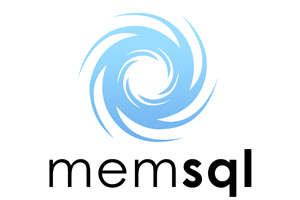 NEWS
NEWS
 NEWS
NEWS
 NEWS
NEWS
![]() The press release is titled “MemSQL Introduces the World’s First Real-Time, Big Data Analytics Platform to Fuse Structured and Semi-Structured Data into a Single Database”. It covers a lot, but what is happening here is a fascinating new developer and database administrator option. MemSQL has announced a first in the business with a product that can cultivate and combine data from these two different types of sources. This leading advancement is achieved by providing Java Script Object Notation (JSON) analytics. With a consolidated view of structured and semi-structured data, analytics can now be executed on datasets where it couldn’t be done before without significant and costly transformation. The announcement means an alluring alternative to the popular MongoDB NoSQL database and other systems out there will be available with a compelling set of enterprise features.
The press release is titled “MemSQL Introduces the World’s First Real-Time, Big Data Analytics Platform to Fuse Structured and Semi-Structured Data into a Single Database”. It covers a lot, but what is happening here is a fascinating new developer and database administrator option. MemSQL has announced a first in the business with a product that can cultivate and combine data from these two different types of sources. This leading advancement is achieved by providing Java Script Object Notation (JSON) analytics. With a consolidated view of structured and semi-structured data, analytics can now be executed on datasets where it couldn’t be done before without significant and costly transformation. The announcement means an alluring alternative to the popular MongoDB NoSQL database and other systems out there will be available with a compelling set of enterprise features.
A recent and interesting Gartner survey found that only 42% of respondents had invested in Big Data technology or were planning to do so within a year. The challenge that most organizations said they were encountering were challenges in the volume, variety, or “velocity” of Big Data. That’s where MemSQL and it’s CEO Eric Frenkiel are taking on this challenge. MemSQL sees this incongruency issue between data that is stored in NoSQL environments, semi-structured – and the data most common in the enterprise, stored in SQL databases and structured by definition. This incompatibility is one of the biggest challenges in the industry. MemSQL takes this data in a single, distributed in-memory database, off of speed limited disk-based data architecture, and unlocks big efficiency gains, becoming simpler, with more capacity, faster, and cost-effective.
![]() MemSQL is giving organizations the ability to leverage real-time data in critical business decisions, in understanding their customers and competitors. With the addition of JSON analytics, the company aims to consolidate the database market and eliminate the need for costly and time-consuming middleware solutions. The product is a result of the company’s foray into what’s known as NewSQL, quoting Wikipedia for a definition of NewSQL:
MemSQL is giving organizations the ability to leverage real-time data in critical business decisions, in understanding their customers and competitors. With the addition of JSON analytics, the company aims to consolidate the database market and eliminate the need for costly and time-consuming middleware solutions. The product is a result of the company’s foray into what’s known as NewSQL, quoting Wikipedia for a definition of NewSQL:
NewSQL is a class of modern relational database management systems that seek to provide the same scalable performance of NoSQL systems for online transaction processing (read-write) workloads while still maintaining the ACID guarantees of a traditional database system.
If you’ve read this far then you are likely well-aware of the position of ACID compliance in this industry. When you add the capabilities of JSON, this is an incredibly important new set of features as the standard has become the storage and exchange syntax of choice for semi-structured data. Integrating JSON means organizations can pursue tactful analysis of this previously difficult to reach data.
“With support for JSON, our distributed in-memory database is poised to have the same effect on databases that VMware had on servers,” said Eric Frenkiel, CEO, MemSQL. “By setting the foundation for database consolidation, organizations will soon reap the benefit of lower total cost of ownership and achieve significant efficiency gains by eliminating the difficulty of moving data around. In fact, our ability to combine structured and semi-structured data together could dramatically impact the need for NoSQL in the future.”
MemSQL uses distributed in-memory technology to accelerate applications, provide real-time analytics, and combine structured and semi-structured data into a consolidated Big Data solution. The latest version with support for the JSON data type also offers a range of features that better enable the world’s largest enterprises to benefit from the power of MemSQL’s in-memory database. These include:
MemSQL is giving organizations the ability to make better data-driven decisions, better engage customers, and gain competitive advantages. MemSQL is being used in production environments across hundreds of nodes in some of the most high-velocity Big Data environments in the world. Names like Morgan Stanley, Zynga, and Shutterstock are mentioned as some of their most notable clients.
Support our mission to keep content open and free by engaging with theCUBE community. Join theCUBE’s Alumni Trust Network, where technology leaders connect, share intelligence and create opportunities.
Founded by tech visionaries John Furrier and Dave Vellante, SiliconANGLE Media has built a dynamic ecosystem of industry-leading digital media brands that reach 15+ million elite tech professionals. Our new proprietary theCUBE AI Video Cloud is breaking ground in audience interaction, leveraging theCUBEai.com neural network to help technology companies make data-driven decisions and stay at the forefront of industry conversations.